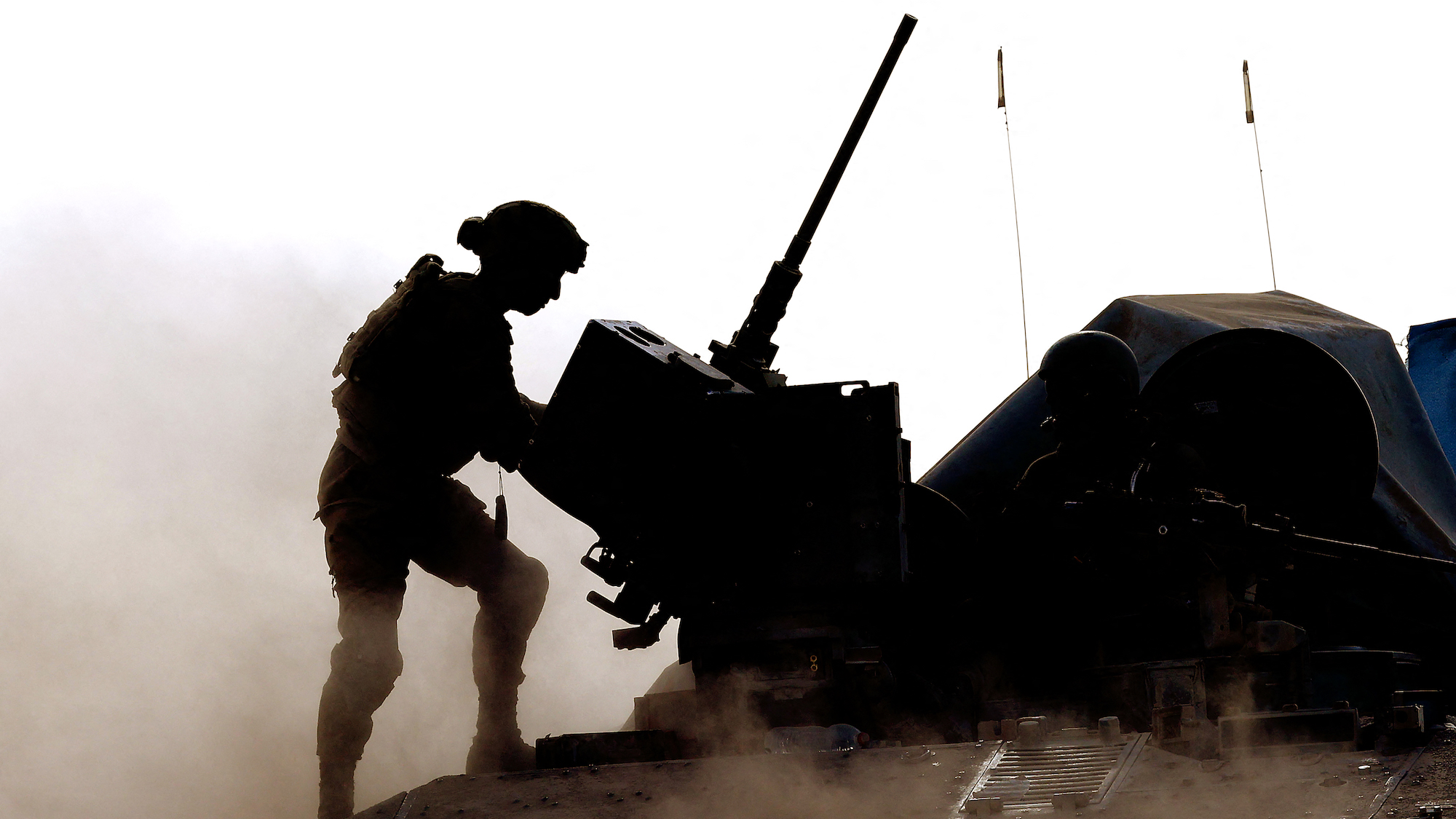Does Israel-Hezbollah ceasefire help or hinder Gaza peace?
An end to the conflict with Lebanon has sparked hopes that a similar deal can be reached between Israel and Hamas

A free daily email with the biggest news stories of the day – and the best features from TheWeek.com
You are now subscribed
Your newsletter sign-up was successful
The new ceasefire between Hezbollah and Israel will allow hundreds of thousands of people to return to their homes on both sides of the border.
The "hard-won diplomatic achievement" brokered by President Biden, brings "calm" to one of the most "volatile borders in the Middle East", said Barak Ravid at Axios, but sustaining it will be the US's biggest challenge.
But beyond Hezbollah and Lebanon, attention has already turned to Gaza and whether the ceasefire will help or hinder efforts to bring an end to its humanitarian crisis.
The Week
Escape your echo chamber. Get the facts behind the news, plus analysis from multiple perspectives.

Sign up for The Week's Free Newsletters
From our morning news briefing to a weekly Good News Newsletter, get the best of The Week delivered directly to your inbox.
From our morning news briefing to a weekly Good News Newsletter, get the best of The Week delivered directly to your inbox.
What did the commentators say?
President Biden's successful ceasefire is evidence that "it’s possible to make peace in the Middle East as well as war," said Nicholas Kristof in The New York Times, but the real test will be how "durable" that peace is.
Israel's war in Lebanon was "successful militarily" and that forced Hezbollah into a position of accepting a cessation of hostilities. However, it's "still unclear" what Israeli Prime Minister Benjamin Netanyahu is "trying to achieve by continuing the war in Gaza", and what comes afterwards. That makes it "difficult" for anyone to "negotiate an end to fighting".
Israel may also have been "buoyed" by its "battlefield gains" against Hezbollah, said Andrew England in the Financial Times, and a strengthened "sense of military and intelligence superiority" may embolden its military aims elsewhere. But even with the ceasefire, the region remains a "combustible environment" and Israel must avoid the "risk of hubris" with Hezbollah potentially already "plotting its restoration".
The key difference in achieving a peace deal in Gaza appears to be the "lack of will" on either side, said Gregory Holyoke at Euronews, and the prospect is looking like an "increasingly insurmountable task" despite months of talks between various mediators.
A free daily email with the biggest news stories of the day – and the best features from TheWeek.com
And while a successful deal with Hezbollah could be seen as a signal of hope for similar in Gaza, it has seemingly left Palestinians "feeling abandoned and fearful that Israel will focus squarely on its onslaught in the enclave", said Nidal Al-Mughrabi at Reuters, with the US unable or unwilling to broker something similar with Hamas in Gaza.
The Biden administration has "repeatedly told the public it now supports a ceasefire" but has also "preserved Israel's right to pursue its aim of eradicating Hamas", something many officials have already conceded is "impossible", said Nathan J. Robinson at Foreign Policy.
What next?
There are some signs of hope for a ceasefire, however. Hamas is reportedly again "ready" to reach a deal and to "exchange prisoners", said The Times of Israel, and the US is hoping the "loss of Hezbollah's military support" will push Hamas to seek a peace agreement.
The group has previously indicated it wants a ceasefire agreement but has "been unwilling to meet Israeli demands on hostages", while Hamas accuses Israel of "obstructing an agreement".
Months of mediated negotiations have failed to "conclude" a solid ceasefire, said Al-Mughrabi, but US officials are now hoping the Hezbollah agreement will act as a "catalyst for a deal to end hostilities in Gaza".
Richard Windsor is a freelance writer for The Week Digital. He began his journalism career writing about politics and sport while studying at the University of Southampton. He then worked across various football publications before specialising in cycling for almost nine years, covering major races including the Tour de France and interviewing some of the sport’s top riders. He led Cycling Weekly’s digital platforms as editor for seven of those years, helping to transform the publication into the UK’s largest cycling website. He now works as a freelance writer, editor and consultant.